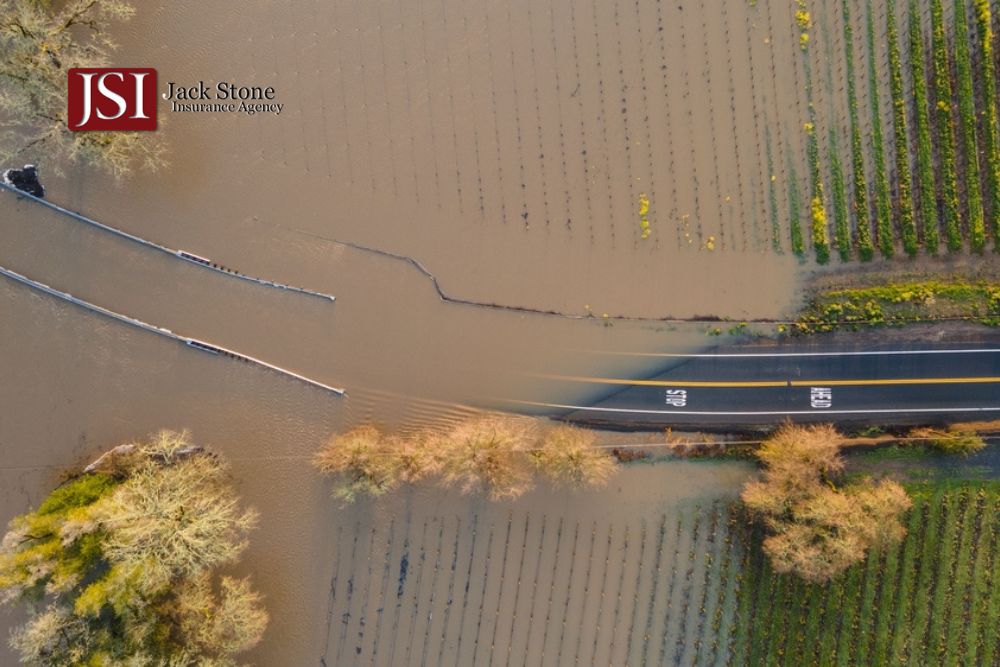Is Flood Insurance Worth the Price? Unveiling the Cost of Coverage

Floods are one of the most common and costly natural disasters in the United States. While most homeowners insurance policies exclude flood damage, a separate flood insurance policy can provide crucial financial protection. But is the price tag worth the relief? Let’s understand flood insurance, exploring costs and factors that influence your premium.
How Much Does Flood Insurance Cost?
Unfortunately, there’s no one-size-fits-all answer to this question. The cost of flood insurance varies significantly depending on several factors. Here’s a ballpark range to give you a general idea:
National Flood Insurance Program (NFIP): The average annual premium for an NFIP policy is around $700, but it can range anywhere from a few hundred dollars to several thousand dollars a year.
Private Flood Insurance: Private flood insurance can be more expensive or cheaper than NFIP policies, depending on your specific flood risk and location.
5 Factors that Impact the Cost of Flood Insurance
Several key factors influence the cost of your flood insurance policy, such as:
Flood Zone: This is the single most significant factor. Properties located in high-risk flood zones will have significantly higher premiums compared to those in lower-risk zones.
Elevation: The elevation of your home relative to the nearest body of water plays a crucial role. Homes built on higher ground generally have lower premiums than those in low-lying areas.
Building Coverage: The amount of coverage you choose for your building structure will impact your premium. Higher coverage amounts naturally translate to higher costs.
Deductible: Similar to other insurance policies, selecting a higher deductible for your flood insurance lowers your premium. But it also means a larger out-of-pocket expense in the event of a claim.
Dwelling Use: Residential properties typically have lower flood insurance premiums than commercial properties.
Where Are Flood Insurance Rates Increasing the Most Under Risk Rating 2.0?
While Risk Rating 2.0 aims for a more equitable system, some areas might experience significant premium hikes. Here’s a general breakdown:
Coastal Areas: Properties located near oceans or tidal waters are more likely to see increased premiums due to their higher flood risk.
Areas with Increased Flood Frequency: Regions experiencing more frequent flooding events might face higher premiums to reflect the elevated risk.
Previously Subsidized Properties: Properties that previously benefited from lower premiums due to outdated flood maps might see adjustments under Risk Rating 2.0, potentially leading to higher costs.
However, it’s not all doom and gloom. Here’s the good news:
Lower-Risk Areas: Homes in low-risk zones might see a decrease in premiums under the new system.
Discounts Available: Certain mitigation measures like elevating your home or installing flood vents can qualify you for discounts on your flood insurance premium.
Do I Need Flood Insurance?
Here are some key factors to consider when deciding if you need flood insurance:
Flood Zone: Living in a high-risk flood zone makes flood insurance highly recommended, even if your mortgage doesn’t require it.
Proximity to Water Bodies: If your property is located near rivers, lakes, or even streams, flood insurance can be a wise investment.
Past Flooding: Has your area experienced flooding in the past? Historical data can be a good indicator of potential future risk.
Remember, even low-risk areas are not immune to flooding. Unexpected heavy rainfall or dam failures can cause flooding events in seemingly low-risk zones.
Get Affordable Earthquake Insurance at Jack Stone Insurance Agency
Jack Stone Insurance Agency can help you navigate the complexities of flood insurance and determine if it’s the right choice for you. Don’t wait for disaster to strike! Contact us today to ensure your property is protected. Call us at (925) 392-8365 for a quick consultation.







